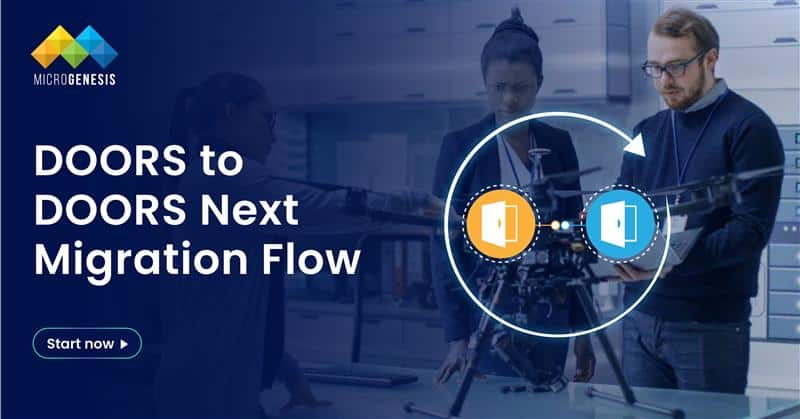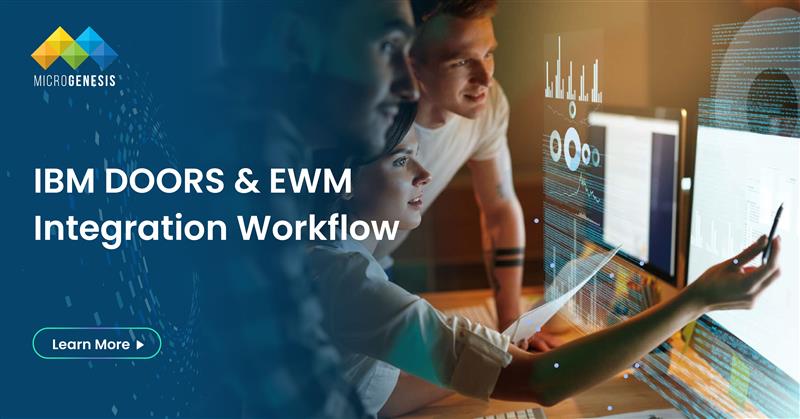In today’s rapidly evolving digital landscape, adapting to new technology is critical to maintaining operational efficiency, security, and compliance. IBM’s latest release of the Engineering Lifecycle Management (ELM) suite, particularly IBM DOORS Next 7.0.3, brings major updates that enhance performance, scalability, and flexibility. However, a key change in this release is the discontinuation of Microsoft SQL Server (MSSQL) support. Organizations still relying on MSSQL must now migrate to more robust systems such as IBM Db2 or Oracle.
While this may seem like a challenge, it’s also an opportunity to unlock significant performance improvements. In this article, we’ll highlight the five major risks of not upgrading to ELM 7.0.3 and why migrating now will future-proof your business.
1. Compromised Data Integrity
With the enhanced architecture in IBM ELM 7.0.3, your systems need a powerful database to maintain data integrity. Delaying migration means missing out on robust data-handling capabilities that are essential for managing complex engineering workflows. IBM ELM Solutions ensure seamless integration, improved performance, and compliance for your development processes.
Db2 and Oracle are designed for high transaction volumes and consistency, ensuring accurate, reliable data throughout the product lifecycle.
Without migration, businesses risk data discrepancies and potential loss, undermining confidence in critical decision-making.
2. Increased Security Vulnerabilities
In engineering environments, sensitive data must be protected from unauthorized access. ELM 7.0.3 introduces enhanced security features, but to maximize these benefits, organizations need databases that can handle advanced encryption, real-time monitoring, and access control mechanisms.
Db2 and Oracle offer the necessary security frameworks to protect your data from internal and external threats.
Relying on MSSQL exposes businesses to security risks, as it lacks the capabilities required to support modern engineering data environments.
3. Compliance Risks with Regulatory Standards
Regulatory compliance, whether under GDPR, HIPAA, or other standards, requires efficient data management, timely access, and secure storage. IBM ELM 7.0.3 improves compliance support, but leveraging these improvements demands a database capable of handling large-scale auditability and regulatory workloads. An experienced IBM ELM Consultant can help you implement the right strategies to maximize compliance and efficiency.
Db2 and Oracle are better suited to meet these compliance requirements, ensuring your business avoids regulatory fines or reputational damage.
Failure to migrate could jeopardize compliance, putting your organization at legal and financial risk.
4. Operational Inefficiencies
The performance upgrades in ELM 7.0.3 are designed to improve workflows. However, without a database optimized for these new capabilities, teams may encounter bottlenecks that slow down engineering processes.
Migrating to Db2 or Oracle ensures smoother processing, faster data retrieval, and less downtime, enabling teams to focus on innovation instead of troubleshooting.
Staying on an unsupported platform like MSSQL can lead to delays, inefficiencies, and increased operational costs.
5. Limited Scalability for Future Growth
IBM ELM 7.0.3 introduces advanced scalability features to handle growing workloads. As your business expands, it’s crucial to have a database that can support increasing data needs. A seamless IBM ELM implementation ensures optimal performance, scalability, and compliance for your evolving requirements.
Db2 and Oracle provide the scalability needed for future growth, ensuring seamless operations even as demands increase.
Sticking with an outdated or unsupported database limits your ability to scale effectively, leaving your business vulnerable to future challenges.
Read more: Addressing Complexity in Electric Vehicle (EV) System Design and Development Using IBM ELM
Prioritize Migration for Immediate Benefits
IBM’s decision to end MSSQL support in ELM 7.0.3 signals the importance of future-proofing your infrastructure. Continuing to use MSSQL restricts access to ELM’s advanced capabilities and exposes your business to risks that could have long-term consequences. Migrating to Db2 or Oracle ensures you can leverage the full potential of ELM 7.0.3, benefiting from enhanced data handling, improved security, and seamless scalability.
While migration can be complex, MicroGenesis TechSoft simplifies the process. With over 20 years of expertise in Enterprise Digital Transformation, we offer end-to-end migration services that ensure minimal disruption to your operations. From planning to execution, our team ensures that your data remains secure, and your systems function at peak performance throughout the transition.
Unlock the full potential of IBM ELM 7.0.3 by migrating to a secure, high-performance database. Partner with MicroGenesis TechSoft to future-proof your business with a scalable and efficient solution that keeps you ahead of the curve.
Contact MicroGenesis TechSoft today to begin your migration and achieve a seamless, future-ready ELM environment.
Sources:
Performance considerations: Microsoft® SQL Server® and IBM® DOORS® Next 7.0.x (Engineering Lifecycle Management)
Conclusion:
Upgrading to IBM ELM 7.0.3 is crucial to avoid security risks, compliance issues, and performance limitations caused by the discontinuation of MSSQL support. Ensuring a smooth transition will help maintain system integrity, scalability, and efficiency. At MicroGenesis, we specialize in IBM Engineering Lifecycle Management solutions, providing expert guidance and seamless upgrades. As a trusted digital transformation consultant, we help businesses navigate these changes, optimize workflows, and stay ahead in an evolving regulatory landscape.




